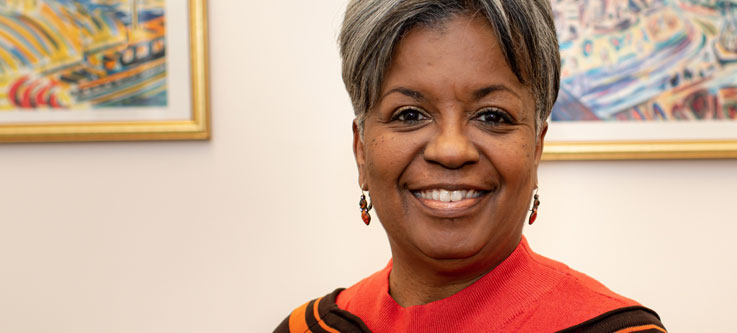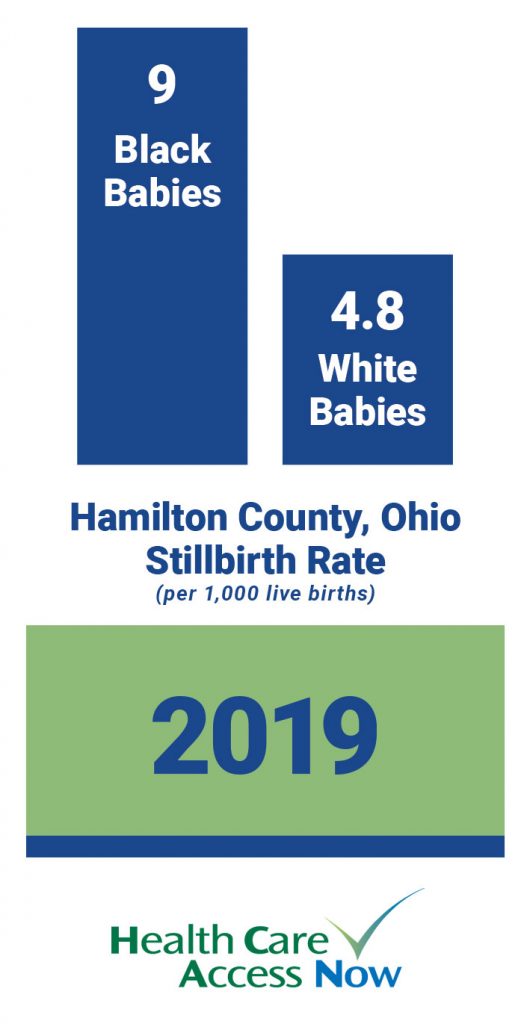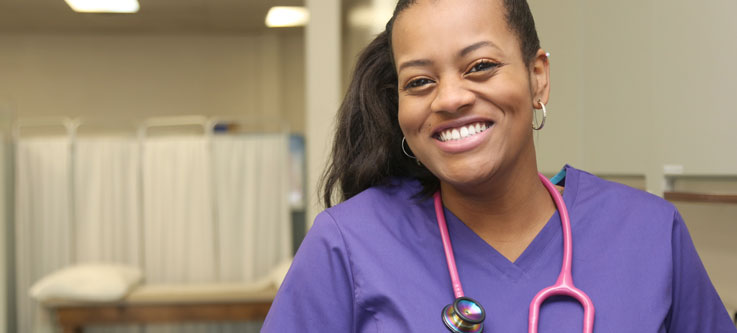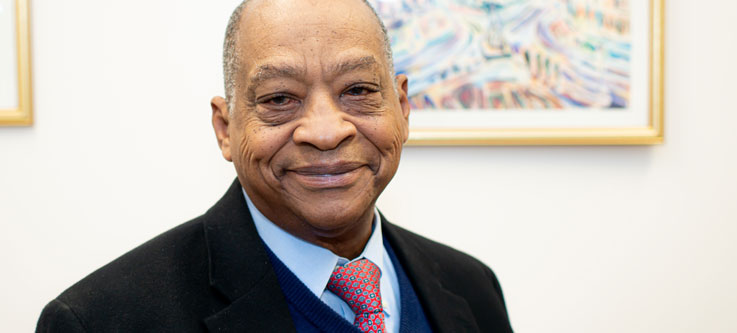Reducing infant mortality and low birth weight with Denise Harris

Denise Harris is the Maternal and Child Health Care Coordination Supervisor for Health Care Access Now (HCAN). That means she leads a team of five Community Healthcare Workers (CHWs) who help remove impediments for pregnant mothers, with the end goal being reduced infant mortality and low birth weight rates.

Stillbirth rates vary based on ethnicity. For example, non-Hispanic black women are more than twice as likely to experience a stillbirth than non-Hispanic white women. Harris works with her team in the community to correct this inequity by educating, aiding, and reducing or removing pregnant mothers’ stressors.
Giving mothers a better chance
“I meet with the CHWs regularly to help with any challenges they might be facing,” Harris says. Because she has been doing community work over the last 30 years and has built an extensive network, she can impart advice about making referrals and lead her team in the right direction. Harris also is a Licensed Professional Counselor, “so I really understand how to identify mental and behavioral health barriers.”
The CHWs in her charge meet with clients and assess their obstacles and needs. “We support them so they’re not dealing with stress or lack, which could cause them to have the baby prematurely or miscarry,” Harris says. “We also get an opportunity to promote Safe Sleep [Alone, Back, Crib].” Two of the CHWs on her team are affiliated with the Cradle Cincinnati Safe Sleep initiative.
“We build rapport with the clients, so they trust us when we offer advice,” she says. That includes educating clients on developmental milestones of babies/toddlers, and imparting information on sexual and reproductive health, including the risks of following one pregnancy with another too quickly. “We don’t want our mothers to be overwhelmed if they find out they’re pregnant again in six months. It puts the mother and the baby at greater risk.”
Continuous improvement
Harris promotes continuous education among her team members and embraces the idea for herself. She’s a big fan of the certification training program HCAN provides on site, “which gives students more open exposure.” She also finds the HUB quarterly trainings to be invaluable. “We get to interact and network with other CHWs around the Cincinnati area, and we get additional training.” In turn, they can share “up-to-date, current information” with clients.
This training is important because “CHWs are essential. They are reliable. They have a sense of integrity. They meet clients where they are, working on behalf of the client without any sense of judgment or criticism about the client’s conditions. They lay the foundation for strong communities.”
So much more than health insurance
When she first heard about HCAN, Harris thought the organization linked people with health insurance. “But it’s so much more than that!”
HCAN supports community health improvement in myriad ways, Harris says. “We take a holistic approach so we can get to the root of any challenges the women or their children may be facing.” That includes transportation, housing insecurity, domestic violence, food insecurity, and much more. “We’re able to provide resources or connect clients with agencies that can help. We have strong advocacy practices so we can develop relationships with other providers and give wraparound support.”
And, a lot of the clients have faced implicit bias when seeking medical care. “If someone has had a bad experience with people in the medical arena, we can advocate for them, which helps them feel safe and supported. We improve health by helping clients to ultimately become independent and manage their own care,” she says. This includes steering clients toward establishing relationships with primary care doctors—for themselves and for family members—so they aren’t forced to use the emergency room whenever they become ill.
Harris believes her CHWs can be a voice for their clients. “So many women are living in crisis. We see them for who they are, build rapport, and assist with removing barriers. We want our clients to be healthy overall because if you have healthy clients, you can have a healthy community.”




